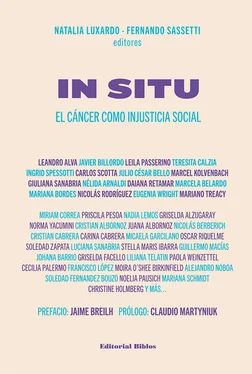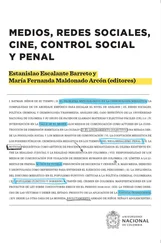In addition to these principles, which shape health care insurance and the delivery of medical care, Germany has a fairly well-established public health system and a strong net of rehabilitation clinics. According to evaluation parameters of health care systems, such as access to care or avoidable mortality, Germany fairs well in OECD comparisons (OECD, 2019; Germany: Country Health Profile , 2019). Despite this, social medicine as a discipline, as it is taught and developed in universities, experienced a strong setback during the Third Reich and after World War II, particularly in West Germany (Michel, 2015; Hubenstorf, 2015). Furthermore, the more profound understanding of medicine as a study of the Anthropos, as Virchow understood it, may have fallen short in German medicine today. Social epidemiology and public health, two other aspects of Virchow’s legacy, have, however, gained increasing importance in unified Germany (Lampert, 2005; Lampert & Koch-Gromus, 2016) since the 2000s.
Let us turn back to the anecdote given at the beginning of this trail of thoughts, in which social medicine is equated with Rudolph Virchow, a 19 thcentury physician. Surely times have changed, and with it the problems that social medicine should address (or not)?
Exploring Virchow’s legacy in Germany further, I look at three quotations drawn from Virchow texts, which I take from his successor David Heinz, in his laudation given for the 200 thanniversary of Virchow’s death. I relate these quotes both to research as well as to medical and clinical practice today.
Virchow: medicine as science – Today: evidence-based medicine
It is known that during the last three decades, the thinking part of German physicians aims to re-establish the connection between medicine and the natural sciences […] and that medicine in the rank of a natural science, as the science of the human, as Anthropology in the widest sense, should ideally be conceptualized as the greatest natural science. (Virchow, 1849)
In this statement, several important characteristics of medicine are outlined, which are still key in practice today. The grounding of medicine in observation and experimentation, the understanding of disease as an objective entity to be studied using the methods of the natural sciences (Roelcke, 2017), are key components of clinical trial methodologies and evidence-based medicine. Statistics and clinical epidemiology, as core disciplines for a science-based medicine, gained but slow recognition in German medicine, though this has gained rapid momentum in the last 20 years. Since Virchow’s times, medicine has clearly situated itself as one of the most influential sciences in German academia. The role played by anthropology and race theories in the scientific foundation of the Third Reich, however, diminished not only their role in medicine after the war, but also collaborative research between the disciplines, so that in Germany today biological anthropology does not exist and medical anthropology has only a weakly institutionalized role. This trend may be reversing, as students of anthropology are often interested in cross-disciplinary works, as are some medical students. Yet, the turn of anthropology away from essentialist ideas and objectifying sciences, as well as the influence of postcolonial studies, have moved anthropology far beyond Virchow’s ideas. I will return to the link between medicine and anthropology later.
Virchow demanded mortality and morbidity statistics – Scientists today demand evidence-based health policy.
It seemed of utmost importance to have statistics of mortality and morbidity for the city [Berlin] as it provides information about the source and severity of dangers which may afflict the citizens. This is the basis for deciding how to tackle the dangers. None of the smaller cities in Germany provide such opportunities for these questions so important for academia. (Virchow, 1859)
The use of statistics as a means to exert power over the people is considered paramount for the evolution of nation states. Virchow, in his statement above, considers statistics to be an important part of political engagement and urban planning. One needs to diagnose and name the situation in order to find the right (political) remedies. Health statistics today have gained momentum as never before. Studies into the worldwide burden of disease, numerous international health organizations, but also national health reporting are today crucial steering instruments for investment and policy decision-making. Social epidemiology in Germany is well-established at the national level (Lampert, 2005; Lampert & Koch-Gromus, 2016; Bolte et al ., 2012; Lehne & Bolte, 2019).
Virchow worked towards the dissemination of scientific knowledge – Today science journalism, as an important medium for knowledge transfer and marketing, is an important tool of academia.
It is our main task to help our audience have the necessary abilities to think freely and independently, because free thinking needs information and critique, the true certainty of information is based on knowledge of the development of things . (Virchow, 1922)
Virchow worked hard to make his scientific work available to the working class. He believed in reducing poverty by reducing ‘ignorance’ in society. He used what we today would call ‘lay language’ to teach in public spaces and gave lectures to the ‘common people’. Education, knowledge translation, and more recently numeracy and health literacy are today being called for in the German health care system and elsewhere. In it embedded is a hierarchical understanding of what right knowledge is and what people should know, what Davic Cantor and others have called “the empty vessel” that is filled with correct information.
One may argue in a rather positivist fashion that Virchow’s ideas are still active in the fields of evidence-based medicine, shared decision-making, and health reporting. Differentiating statistics by socioeconomic status, and improving the health literacy and numeracy of populations, are fundamental to German health policies. The activation of socioeconomically disadvantaged groups to become politically engaged is recognized as an important goal of research activities. None of this, however, works under the label of social medicine. Social medicine is in fact receding behind epidemiology, health economics, and health services research.
The importance of the social and political causes of bodily manifested disease is today well-established. Social epidemiologists such as Nancy Krieger and medical anthropologists such as Margaret Lock have long connected context to local biologies, embodiment and manifest diseases (Krieger, 1994, 2014; Lock, 2006). PhD/MD programs with training in medical anthropology or history have been bringing new ideas to social medicine and medical history (Harvard Medical School; Johns Hopkins School of Medicine; McGill University; Berkeley University of California). A medical anthropologist headed the World Bank for several years. The ideas of social medicine have come a long way since Virchow’s times. They have seen post-colonial and feminist studies, science and technology studies.
Germany has, without a doubt, one of the best social security systems in the world, the foundations were laid at the end of the 19 thcentury. Social medicine has from the start encompassed labour laws. The German scholar Heinz David (2002) suggests that Virchow used the term ‘social’ on three levels: 1. to focus on those who are socially disadvantaged in society; 2. according to his understanding of medicine as a social science of the human; and 3. in consideration of the sociality of humans in society, or the fact that humans live in and with social communities. In this sense, for him “medicine was politics on a small scale” and “politics medicine on a large scale” (David, 2002).
Читать дальше












